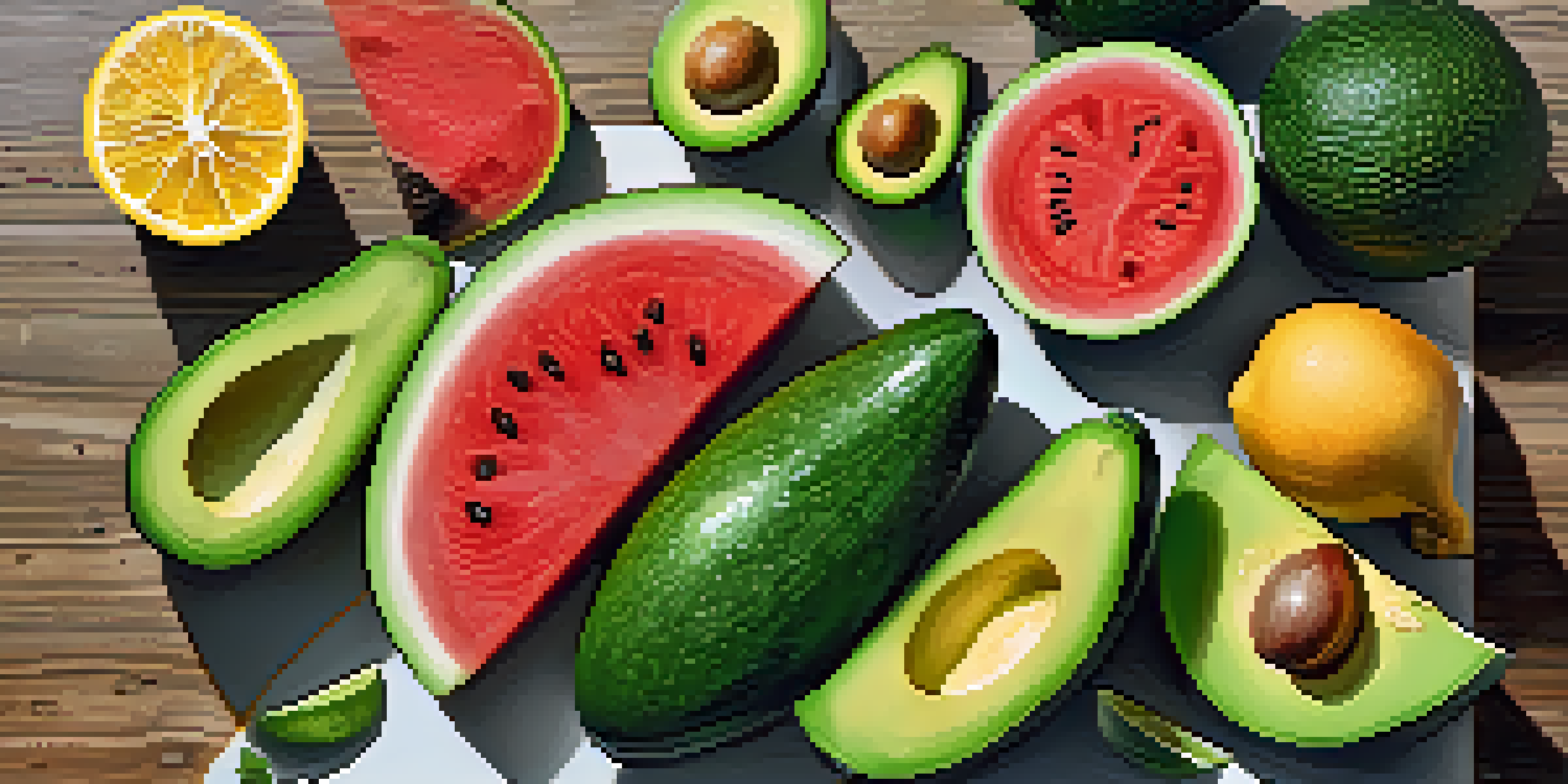The Impact of Hydration on Skin Health in Naturopathy

Understanding Hydration and Skin Health
Hydration plays a crucial role in maintaining skin health. Our skin, being the largest organ, needs adequate water to function properly. When we're well-hydrated, our skin appears plump and vibrant, while dehydration can lead to dryness and a dull complexion.
Water is the driving force of all nature.
In the realm of naturopathy, hydration is not just about drinking water. It also involves nourishing the body with hydrating foods, such as fruits and vegetables, which contribute to overall skin health. Think of your skin as a sponge; when it’s saturated, it looks healthy and youthful.
Moreover, proper hydration supports the skin's barrier function, helping to protect against environmental stressors. This is particularly important in today’s world, where pollution and UV exposure can wreak havoc on our skin.
The Connection Between Water Intake and Skin Elasticity
When we think about skin elasticity, hydration is a key player. Water helps maintain the skin's elasticity, allowing it to bounce back after stretching. Without sufficient hydration, skin can become loose, leading to premature aging.

In naturopathy, it's believed that when the body is well-hydrated, it can better eliminate toxins, which can also affect skin firmness. Imagine your skin as a balloon; if it’s filled with air (or water), it stays firm and retains its shape.
Hydration is Key for Skin Health
Adequate hydration, from both water and hydrating foods, is essential for maintaining a vibrant and healthy complexion.
Therefore, keeping up with your water intake can significantly enhance your skin’s texture and resilience. This simple act can lead to noticeable improvements in how your skin feels and looks.
Identifying Signs of Dehydrated Skin
Dehydrated skin can manifest in various ways, including dryness, flaking, and increased sensitivity. You might notice that your skin feels tight after washing or that fine lines seem more pronounced. These signs indicate that your skin is craving moisture.
The skin is a mirror of the body’s overall health.
Incorporating a hydration-focused routine can help alleviate these symptoms. This can include drinking more water, using hydrating serums, or opting for moisturizers rich in humectants, which draw moisture to the skin.
Additionally, recognizing these signs early can prompt you to take action before the skin’s condition worsens. It’s all about listening to your body and giving it the hydration it needs.
Naturopathic Approaches to Enhance Skin Hydration
Naturopathy emphasizes holistic approaches to skin health, including hydration. Beyond drinking water, consuming herbal teas and broths can also contribute to your skin's moisture levels. These options are often rich in antioxidants, which further support skin health.
Moreover, naturopaths may recommend specific supplements, such as omega-3 fatty acids, which help maintain skin moisture and elasticity. Think of these supplements as the essential oils that keep your car running smoothly.
Diet Affects Skin Hydration
Incorporating water-rich foods and healthy fats into your diet can significantly boost skin hydration and overall health.
Incorporating these practices into your daily routine can lead to long-term benefits for your skin, making it look more vibrant and youthful.
The Role of Diet in Skin Hydration
What you eat plays a significant role in how hydrated your skin looks and feels. Foods high in water content, like cucumbers and watermelon, not only hydrate but also provide essential vitamins and minerals that promote skin health.
Incorporating healthy fats from sources like avocados and nuts can also help maintain the skin's moisture barrier. Think of these foods as the building blocks for a strong and resilient skin structure.
A balanced diet rich in antioxidants, vitamins, and minerals will not only keep your skin hydrated but also protect it against damage, giving you a radiant complexion.
Hydration and Skin Conditions: The Naturopathic View
Many skin conditions, such as eczema and psoriasis, can be exacerbated by dehydration. Naturopathy suggests that maintaining optimal hydration levels can alleviate some symptoms and promote healing.
For instance, individuals with eczema may find that increasing their water intake helps reduce dry patches and flare-ups. This is because hydrated skin can better cope with irritants and inflammation, acting almost like a protective shield.
Recognize Dehydrated Skin Signs
Identifying signs of dehydrated skin early allows for proactive hydration measures, promoting better skin health.
Understanding the connection between hydration and skin conditions can empower individuals to take proactive steps towards improving their skin health.
Practical Tips for Staying Hydrated
Staying hydrated doesn’t have to be a chore. Start by carrying a water bottle with you throughout the day as a friendly reminder to sip regularly. Setting reminders on your phone can also encourage you to drink water consistently.
In addition to plain water, consider infusing your beverages with fruits or herbs for added flavor and nutrients. This simple change can make hydration feel like a delightful treat rather than a task.

Lastly, pay attention to your body’s signals. If you’re feeling thirsty or your mouth is dry, it’s time to hydrate. Making these small adjustments can lead to significant improvements in your skin health.